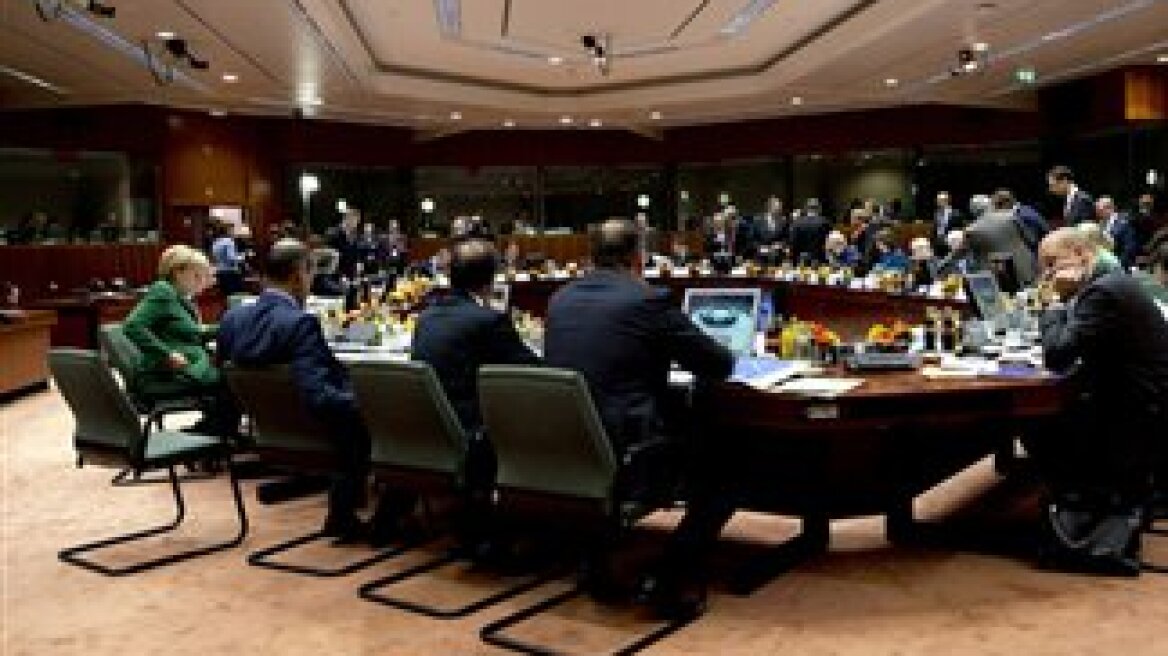
All eyes turned to today's Eurogroup meeting
All eyes turned to today's Eurogroup meeting
After a weekend of backstage consultations coupled with European and transatlantic communications, the Greek government still appears "cautiously optimistic" about the outcome of today's Eurogroup.

UPD:
After a weekend of backstage consultations coupled with European and
transatlantic communications, the Greek government still appears
"cautiously optimistic" about the outcome of today's Eurogroup.
Beyond that, it keeps its cards close to the chest as it considers that discussions are at a crucial point, and has not yet ruled out the risk of yet another delay.
Today's meeting will depend on whether the IMF and Berlin have identified common ground about the sustainability of the Greek debt. After agreeing to consider the Greek debt sustainable at 124% of the GDP in 2020, the IMF asks Europe to bear the additional costs through its 44 billion euro reduction, the point with which Germany disagrees.
The Greek government suggests that consultations with European negotiators include technical solutions to achieve debt reduction without officially having an additional haircut. It excludes disbursement in small amounts and insists that the first tranche will be at 31.5 billion euros, followed by two more of 5 and 8 billion respectively. It dismisses the possibility that the gap of 10 billion outlined by finance minister Yannis Stournaras resulting from additional measures within the country that will be accompanied by a new memorandum for 2015-2016. The issue is related to the overall confrontation between the U.S. and the EU about the management not only of the Greek problem, but also of the debt crisis throughout the Eurozone. The Americans finished with their own elections and are now pushing Germany to bear the costs of rescuing the Eurozone, a possibility rejected by the Germans who are using their own elections next September as a pretext. Until then, they are depleted by half-measures, which are likely to destroy the European project, while imposing their own conditions on EU countries through several memoranda.
Having aligned with Berlin only to reap frustration from Merkel and Schäuble’s stance, the Greek government began to make contacts with the U.S., including Samaras’ calls to Lagarde and finance minister Timothy Geithner. Government sources say that there will be an intervention by the U.S. vice president and possibly Obama himself on a backstage level in today's Eurogroup.
Internal complications
Beyond that, it keeps its cards close to the chest as it considers that discussions are at a crucial point, and has not yet ruled out the risk of yet another delay.
Today's meeting will depend on whether the IMF and Berlin have identified common ground about the sustainability of the Greek debt. After agreeing to consider the Greek debt sustainable at 124% of the GDP in 2020, the IMF asks Europe to bear the additional costs through its 44 billion euro reduction, the point with which Germany disagrees.
The Greek government suggests that consultations with European negotiators include technical solutions to achieve debt reduction without officially having an additional haircut. It excludes disbursement in small amounts and insists that the first tranche will be at 31.5 billion euros, followed by two more of 5 and 8 billion respectively. It dismisses the possibility that the gap of 10 billion outlined by finance minister Yannis Stournaras resulting from additional measures within the country that will be accompanied by a new memorandum for 2015-2016. The issue is related to the overall confrontation between the U.S. and the EU about the management not only of the Greek problem, but also of the debt crisis throughout the Eurozone. The Americans finished with their own elections and are now pushing Germany to bear the costs of rescuing the Eurozone, a possibility rejected by the Germans who are using their own elections next September as a pretext. Until then, they are depleted by half-measures, which are likely to destroy the European project, while imposing their own conditions on EU countries through several memoranda.
Having aligned with Berlin only to reap frustration from Merkel and Schäuble’s stance, the Greek government began to make contacts with the U.S., including Samaras’ calls to Lagarde and finance minister Timothy Geithner. Government sources say that there will be an intervention by the U.S. vice president and possibly Obama himself on a backstage level in today's Eurogroup.
Internal complications
Since last Tuesday, the Greek government has stopped everything else and started focusing on what is happening in Europe, postponing internal developments for after today’s Eurogroup meeting. This is an attempt to reduce criticism about the "failure of its strategic planning" as charged by the opposition.
The government said that the money would have come in early November but the tranche is still pending, with huge implications for the Greek economy. However, there were telephone contacts between prime minister Samaras, Fotis Kouvelis and Vangelis Venizelos this weekend on developments and the best possible handling. Whatever the outcome, after the Eurogroup meeting there will be a meeting of political leaders to discuss the next steps. If things go well and the disbursement of the tranche gets the green light, the next chapter in the government plan is the reshuffle in order to breathe new life into the exhausted government. If the negative scenario prevails, the government says it has an alternative plan, but is keeping it a secret.
UPD:
Ακολουθήστε το protothema.gr στο Google News και μάθετε πρώτοι όλες τις ειδήσεις
Δείτε όλες τις τελευταίες Ειδήσεις από την Ελλάδα και τον Κόσμο, τη στιγμή που συμβαίνουν, στο Protothema.gr
Δείτε όλες τις τελευταίες Ειδήσεις από την Ελλάδα και τον Κόσμο, τη στιγμή που συμβαίνουν, στο Protothema.gr
ΡΟΗ ΕΙΔΗΣΕΩΝ
Ειδήσεις
Δημοφιλή
Σχολιασμένα






































